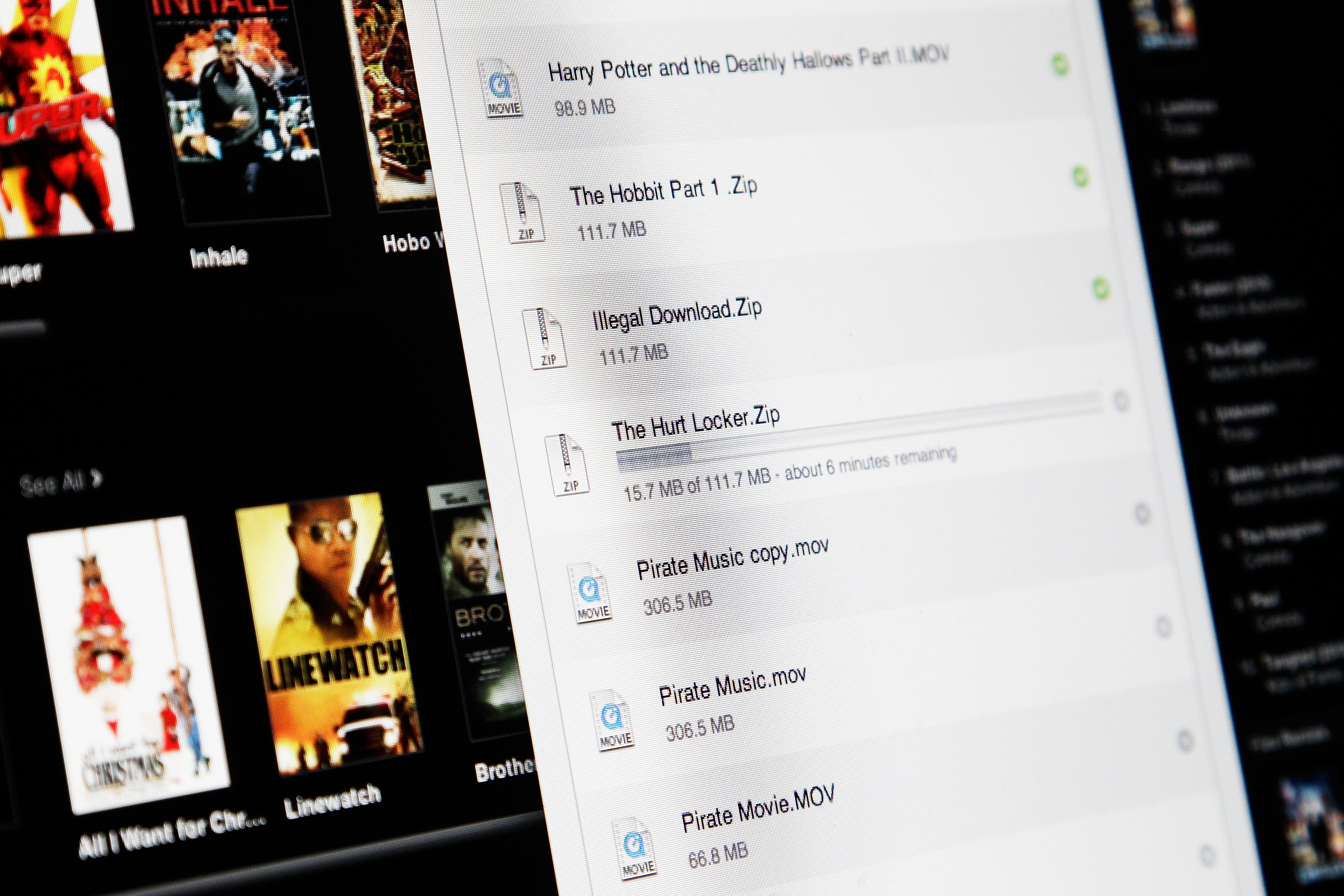
2021 will be a very different year for the movie theater business. Studios, hoping to find ways of turning a profit on big budget blockbusters, have turned to new methods for film releases.
For Warner Bros., the pandemic led its parent company AT&T to decide to release all of its films in theaters and on HBO Max on the same day. Universal, owned by Comcast, has opted to strike deals with individual theaters to shorten the time their films have to stay in cinemas before transitioning to premium video on-demand.
Then there are those like Disney who have, for the most part, postponed the majority of their films until 2021 and placed a handful on its own streaming service.
But, box office analysts won't be the only ones keenly watching how these films perform next year. Piracy experts are eagerly anticipating how these new release methods will impact illegal streaming.
"As a data science researcher, this is a dream," said Brett Danaher, an entertainment analytics and data science professor at Chapman University. "It's such a great experiment."
Heading into 2021, piracy experts told CNBC that they have theories about how pirates will react to these different models, but aren't entirely sure what will happen.
What we know about piracy
For one, piracy is a difficult thing to track. Experts can track some downloads from major piracy websites, but once that file is downloaded, it can be distributed and streamed to thousands of other viewers privately.
It's also why experts provide a range of what piracy could cost the U.S. economy, instead of a firm number. Last year, the Global Innovation Policy Center estimated that worldwide online piracy cost the U.S. economy between $29.9 billion and $71 billion in lost revenue each year.
But a lot can be learned from people who pirate. Looking at the data, experts like Andy Chatterley, the CEO and co-founder of MUSO, a global authority on digital piracy, can provide insights to media companies around the world.
For one, Chatterley noted that the bigger the buzz around a blockbuster, the more piracy it will see. Movies that have big marketing campaigns, pent up demand from fervent fans and lots of media exposure will generate more illegal downloads online.
MUSO's data also suggests that piracy spikes when higher quality versions of films are available on piracy sites. For example, "Bad Boys for Life" arrived in theaters in January and saw a "fairly mild" amount of piracy, Chatterley, said. However, when it became available on video on-demand in mid-March, there was a large spike in online piracy.
Conversely, Disney's "Mulan," which went immediately to streaming, saw a massive spike on its release day and then a decrease overtime.
"The piracy was front-loaded," Chatterley said. "But, the piracy wasn't necessarily bigger or smaller."
How to deter illegal downloads
For companies like AT&T that will be releasing high quality versions of films on day one, there are some ways to deter piracy. For example, two weeks before "Wonder Woman 1984" debuted in North America in theaters and on HBO Max, the film was released internationally.
This allowed audiences to see the film in theaters first before there would be a high quality copy placed on piracy websites. This is especially important because HBO Max is only a domestic product right now.
"Of course, you've got people who are always going to pirate," said Michael Smith, professor of information technology and marketing at Carnegie Mellon University. "The people you are worried about are the people who would have bought your content legally but found [piracy] is more convenient."
Smith said that the majority of people who pirate do so because they have no other legal way of consuming a product. Had an easier legal way been provided to these viewers, they would have paid to view the film.
While online piracy can have negative financial impacts on media companies, the data experts collect can also help these companies determine what their audiences want to watch. Data from groups like MUSO can tell companies what films or TV shows they should be buying or licensing either domestically or to international locations.
For example, the European Union Intellectual Property Office determined that "The Mummy" was disproportionately pirated in Spain and the TV show "South Park" was a popular illegal download in Finland.
This information tells Universal that it may want to make "The Mummy" more widely available in Spain and Viacom that it may want to make a deal with a Finnish streaming service.
What could happen in 2021
As Danaher said, 2021 is going to be a big experiment for the industry when it comes to piracy. It's the first time that there will be multiple different release strategies all happening at the same time and for a prolonged period of time.
Even if some titles are more popular than others, there should be trends in the data that show how people are consuming their entertainment.
Like the previous year, it will be difficult for experts to determine a clear financial impact, particularly because the pandemic will likely effect how people choose to watch certain films. Those that are unable to go to movie theaters may opt to stream legally when available, but may choose illegal methods for major movies instead.
Additionally, with premium video on-demand becoming a purchasing option earlier than usual, it may not be immediately clear if it is on-demand purchases or piracy that is cannibalizing theatrical revenue.
"Unfortunately, I cannot tell you who will win the horse race," Danaher said.
Disclosure: Comcast is the parent company of NBCUniversal and CNBC.
"What" - Google News
January 04, 2021 at 01:17AM
https://ift.tt/3n9R0XC
Studios are experimenting with film release models. Here's what that could mean for movie piracy - CNBC
"What" - Google News
https://ift.tt/3aVokM1
https://ift.tt/2Wij67R
Bagikan Berita Ini
















0 Response to "Studios are experimenting with film release models. Here's what that could mean for movie piracy - CNBC"
Post a Comment